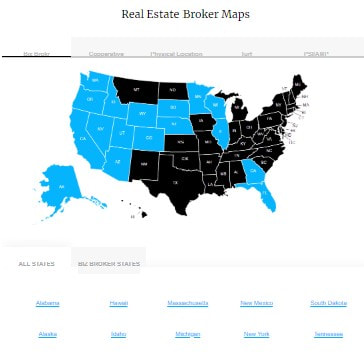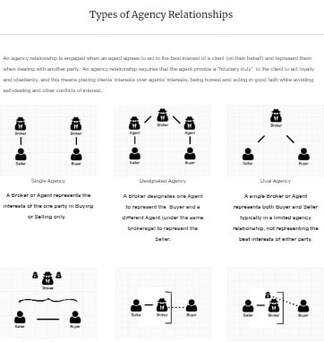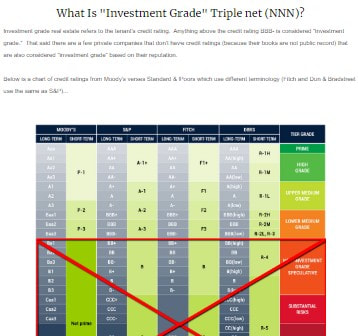Unlocking Your Potential: Exploring Real Estate License Reciprocity Across States
Understanding real estate license reciprocity
Real estate license reciprocity is a process that allows licensed real estate professionals to practice in multiple states without going through the full licensure requirements of each state. It essentially recognizes the credentials and qualifications of an individual from one state and grants them the ability to work in another state.
The concept of reciprocity aims to simplify the process for real estate agents who are looking to expand their business operations or relocate to a different state. Instead of starting from scratch, they can leverage their existing license to save time and effort.
Reciprocity also encourages mobility within the industry, providing agents with increased opportunities for growth and professional development. It helps promote competition, as agents are not limited to working within a single state's market.
However, it’s important to note that while reciprocity exists between certain states, the specific details and requirements vary. Each state has its own rules and regulations regarding reciprocity, and agents must meet certain criteria in order to be eligible.
It is crucial for real estate professionals considering reciprocity to thoroughly research and understand the requirements of both their current state and the state they wish to practice in. By doing so, they can ensure a seamless transition and capitalize on the benefits that reciprocity offers.
The concept of reciprocity aims to simplify the process for real estate agents who are looking to expand their business operations or relocate to a different state. Instead of starting from scratch, they can leverage their existing license to save time and effort.
Reciprocity also encourages mobility within the industry, providing agents with increased opportunities for growth and professional development. It helps promote competition, as agents are not limited to working within a single state's market.
However, it’s important to note that while reciprocity exists between certain states, the specific details and requirements vary. Each state has its own rules and regulations regarding reciprocity, and agents must meet certain criteria in order to be eligible.
It is crucial for real estate professionals considering reciprocity to thoroughly research and understand the requirements of both their current state and the state they wish to practice in. By doing so, they can ensure a seamless transition and capitalize on the benefits that reciprocity offers.
The benefits of real estate license reciprocity
Real estate license reciprocity brings a myriad of benefits to licensed professionals seeking to expand their business or relocate. By taking advantage of this process, real estate agents can save time and effort by avoiding the lengthy licensure requirements of each state.
One of the key advantages of reciprocity is enhanced opportunities for professional growth and development. Agents can tap into new markets and clientele, allowing them to broaden their network and potentially increase their earnings. This mobility within the industry also fosters healthy competition, as agents are not bound by geographical limitations.
Reciprocity also streamlines the process of operating in multiple states. Instead of navigating separate regulatory frameworks and undergoing additional exams or coursework, agents can leverage their existing credentials to seamlessly practice in different jurisdictions.
Moreover, real estate license reciprocity promotes consistency in standards across states. It ensures that licensed professionals meet minimum qualifications and adhere to ethical guidelines regardless of where they work.
In summary, real estate license reciprocity offers numerous advantages for licensed professionals. It facilitates expansion into new markets, saves time and effort on additional licensure requirements, promotes competition, and ensures consistent standards across states. Agents considering reciprocity should carefully research the specific requirements and regulations of both their current state and the state they wish to practice in to make an informed decision about leveraging this opportunity.
One of the key advantages of reciprocity is enhanced opportunities for professional growth and development. Agents can tap into new markets and clientele, allowing them to broaden their network and potentially increase their earnings. This mobility within the industry also fosters healthy competition, as agents are not bound by geographical limitations.
Reciprocity also streamlines the process of operating in multiple states. Instead of navigating separate regulatory frameworks and undergoing additional exams or coursework, agents can leverage their existing credentials to seamlessly practice in different jurisdictions.
Moreover, real estate license reciprocity promotes consistency in standards across states. It ensures that licensed professionals meet minimum qualifications and adhere to ethical guidelines regardless of where they work.
In summary, real estate license reciprocity offers numerous advantages for licensed professionals. It facilitates expansion into new markets, saves time and effort on additional licensure requirements, promotes competition, and ensures consistent standards across states. Agents considering reciprocity should carefully research the specific requirements and regulations of both their current state and the state they wish to practice in to make an informed decision about leveraging this opportunity.
Exploring the requirements for reciprocity
When exploring the requirements for real estate license reciprocity across states, it is important for licensed professionals to thoroughly understand the criteria they need to meet before transferring their license. Each state has its own set of regulations and prerequisites that applicants must fulfill.
Typically, one of the main requirements for reciprocity is a valid and active real estate license in good standing from the original state. Additionally, some states may require proof of education or coursework completion, such as specific pre-licensing classes or continuing education credits.
Another crucial aspect to consider is whether the applicant needs to pass a state-specific exam. While some states may waive this requirement for individuals who hold an equivalent license in another jurisdiction, others may still require successful completion of their own examination.
Another factor to keep in mind is any additional documentation needed during the application process. This may include submitting fingerprints for a background check, providing proof of errors and omissions insurance coverage, or paying certain fees.
To navigate these requirements successfully, it is advisable for licensed professionals interested in reciprocity to consult with the real estate licensing authorities in both their current state and desired new state. By understanding and fulfilling all necessary prerequisites, agents can ensure a smooth transfer of their real estate license.
Typically, one of the main requirements for reciprocity is a valid and active real estate license in good standing from the original state. Additionally, some states may require proof of education or coursework completion, such as specific pre-licensing classes or continuing education credits.
Another crucial aspect to consider is whether the applicant needs to pass a state-specific exam. While some states may waive this requirement for individuals who hold an equivalent license in another jurisdiction, others may still require successful completion of their own examination.
Another factor to keep in mind is any additional documentation needed during the application process. This may include submitting fingerprints for a background check, providing proof of errors and omissions insurance coverage, or paying certain fees.
To navigate these requirements successfully, it is advisable for licensed professionals interested in reciprocity to consult with the real estate licensing authorities in both their current state and desired new state. By understanding and fulfilling all necessary prerequisites, agents can ensure a smooth transfer of their real estate license.
Researching which states offer reciprocity
Researching which states offer reciprocity is an important step for licensed real estate professionals who are considering transferring their license. Each state has its own set of regulations and requirements when it comes to reciprocity, so it is crucial to determine if the desired new state offers this option. That's why we have created this Directory.
To begin the research process, individuals can start by using the State page in the Directory to visit the website of the real estate licensing authority in their desired new state. While we summarize the information, this authority will typically provide detailed information about licensing requirements.
Additionally, there are various online resources available that provide comprehensive lists of states that offer real estate license reciprocity like this site. These resources often include information on which specific states have agreements with each other, making it easier for professionals to narrow down their options.
It is also advisable to reach out directly to the real estate licensing authorities in both the current and desired new state. They can provide accurate and up-to-date information regarding potential reciprocity agreements and any additional steps or requirements needed for transferring a license.
By thoroughly researching which states offer reciprocity, real estate professionals can ensure they make informed decisions about where to transfer their license and avoid any unnecessary delays or complications in the process.
To begin the research process, individuals can start by using the State page in the Directory to visit the website of the real estate licensing authority in their desired new state. While we summarize the information, this authority will typically provide detailed information about licensing requirements.
Additionally, there are various online resources available that provide comprehensive lists of states that offer real estate license reciprocity like this site. These resources often include information on which specific states have agreements with each other, making it easier for professionals to narrow down their options.
It is also advisable to reach out directly to the real estate licensing authorities in both the current and desired new state. They can provide accurate and up-to-date information regarding potential reciprocity agreements and any additional steps or requirements needed for transferring a license.
By thoroughly researching which states offer reciprocity, real estate professionals can ensure they make informed decisions about where to transfer their license and avoid any unnecessary delays or complications in the process.
The process of transferring your real estate license
The process of transferring your real estate license can vary depending on the specific requirements of the states involved. However, there are some general steps that professionals can expect when transferring their license to a new state.
Firstly, it is essential to research and understand the specific requirements for transferring a real estate license in the desired new state. This may include completing an application, providing proof of education or experience, and submitting any necessary documents or fees.
Next, professionals will typically need to request a license verification from their current state's licensing authority. This verifies that they hold an active and valid license in good standing.
Once these initial steps are completed, professionals will need to submit all required materials and documentation to the licensing authority in the new state. This may include the completed application, proof of education or experience, and any necessary fees.
After submission, it is common for applicants to undergo a background check and fingerprinting process as part of the licensing examination.
Finally, once all requirements have been met, professionals can expect to receive their new real estate license from the licensing authority in the new state.
It is important for individuals to allow ample time for this process, as it can take several weeks or even months for a transfer to be completed. By following these steps and closely adhering to each state's requirements, professionals can successfully transfer their real estate license to a new state.
Firstly, it is essential to research and understand the specific requirements for transferring a real estate license in the desired new state. This may include completing an application, providing proof of education or experience, and submitting any necessary documents or fees.
Next, professionals will typically need to request a license verification from their current state's licensing authority. This verifies that they hold an active and valid license in good standing.
Once these initial steps are completed, professionals will need to submit all required materials and documentation to the licensing authority in the new state. This may include the completed application, proof of education or experience, and any necessary fees.
After submission, it is common for applicants to undergo a background check and fingerprinting process as part of the licensing examination.
Finally, once all requirements have been met, professionals can expect to receive their new real estate license from the licensing authority in the new state.
It is important for individuals to allow ample time for this process, as it can take several weeks or even months for a transfer to be completed. By following these steps and closely adhering to each state's requirements, professionals can successfully transfer their real estate license to a new state.
Preparing for the licensing exam in a new state
Preparing for the licensing exam in a new state requires careful preparation and study. While each state may have slightly different requirements and exams, there are some general steps that professionals can take to increase their chances of success.
Firstly, it is important to familiarize oneself with the specific content covered in the licensing exam for the new state. This may include topics such as real estate laws, ethics, contracts, and property management. Reviewing textbooks, study guides, and online resources can help individuals gain a thorough understanding of these subjects.
Additionally, taking practice exams can be highly beneficial. These practice exams simulate the actual exam conditions and allow individuals to gauge their knowledge and identify areas where they need further study. Many states offer practice exams or study materials on their licensing authority's website.
It is also recommended to consider enrolling in a pre-licensing course or attending exam prep classes. These courses provide comprehensive instruction on the material covered in the exam and often offer valuable test-taking strategies.
Lastly, creating a study schedule and committing dedicated time each day to review the material can greatly enhance preparation efforts. Breaking down the content into manageable sections and focusing on one topic at a time can make studying more effective.
By investing time and effort into proper preparation, professionals can increase their likelihood of passing the licensing exam in a new state and successfully obtaining their real estate license.
Firstly, it is important to familiarize oneself with the specific content covered in the licensing exam for the new state. This may include topics such as real estate laws, ethics, contracts, and property management. Reviewing textbooks, study guides, and online resources can help individuals gain a thorough understanding of these subjects.
Additionally, taking practice exams can be highly beneficial. These practice exams simulate the actual exam conditions and allow individuals to gauge their knowledge and identify areas where they need further study. Many states offer practice exams or study materials on their licensing authority's website.
It is also recommended to consider enrolling in a pre-licensing course or attending exam prep classes. These courses provide comprehensive instruction on the material covered in the exam and often offer valuable test-taking strategies.
Lastly, creating a study schedule and committing dedicated time each day to review the material can greatly enhance preparation efforts. Breaking down the content into manageable sections and focusing on one topic at a time can make studying more effective.
By investing time and effort into proper preparation, professionals can increase their likelihood of passing the licensing exam in a new state and successfully obtaining their real estate license.
Considering the potential limitations and challenges
When exploring real estate license reciprocity, it's important to consider the potential limitations and challenges that may arise. While reciprocity offers many advantages, there are some factors to keep in mind.
One limitation is that not all states participate in reciprocity agreements. It's crucial to research which states offer reciprocity and understand their specific requirements. Additionally, even if a state does have reciprocity with your current state, they may still require additional exams or coursework.
Another challenge is that different states have varying regulations and laws regarding real estate practices. Professionals transferring their license must familiarize themselves with the new state's rules and regulations to ensure compliance. This may involve learning new contract forms or understanding different disclosure requirements.
Furthermore, professionals should be prepared for potential delays in obtaining a new real estate license through reciprocity. The process of transferring a license can take time as paperwork is submitted and reviewed by the licensing authority. It’s essential to factor in these potential delays when planning a move or transitioning to a new market.
Lastly, professionals should be aware that with reciprocity comes the responsibility to maintain their license in good standing. This means adhering to continuing education requirements, maintaining professional ethics, and keeping up-to-date with any changes in state legislation.
By considering these potential limitations and challenges, real estate professionals can make informed decisions when exploring license reciprocity options across states.
One limitation is that not all states participate in reciprocity agreements. It's crucial to research which states offer reciprocity and understand their specific requirements. Additionally, even if a state does have reciprocity with your current state, they may still require additional exams or coursework.
Another challenge is that different states have varying regulations and laws regarding real estate practices. Professionals transferring their license must familiarize themselves with the new state's rules and regulations to ensure compliance. This may involve learning new contract forms or understanding different disclosure requirements.
Furthermore, professionals should be prepared for potential delays in obtaining a new real estate license through reciprocity. The process of transferring a license can take time as paperwork is submitted and reviewed by the licensing authority. It’s essential to factor in these potential delays when planning a move or transitioning to a new market.
Lastly, professionals should be aware that with reciprocity comes the responsibility to maintain their license in good standing. This means adhering to continuing education requirements, maintaining professional ethics, and keeping up-to-date with any changes in state legislation.
By considering these potential limitations and challenges, real estate professionals can make informed decisions when exploring license reciprocity options across states.
Final thoughts on real estate license reciprocity
In conclusion, real estate license reciprocity offers significant advantages for professionals looking to expand their business across different states. By understanding the requirements and researching which states offer reciprocity, real estate agents can save time and money by transferring their license instead of starting from scratch.
While there are potential limitations and challenges to consider, such as varying regulations and potential delays in obtaining a new license, these can be overcome with proper planning and preparation. Being aware of the different rules and staying up-to-date with changes in state legislation is essential for maintaining a license in good standing.
Overall, license reciprocity provides opportunities for real estate professionals to broaden their horizons and tap into new markets. It allows them to leverage their skills and expertise while providing better service to clients who may be relocating or investing in multiple states.
With careful consideration of the potential limitations and challenges, real estate agents can navigate the process of transferring their license successfully. As they unlock the potential that comes with real estate license reciprocity across states, they can seize new opportunities for growth and success in the industry.
While there are potential limitations and challenges to consider, such as varying regulations and potential delays in obtaining a new license, these can be overcome with proper planning and preparation. Being aware of the different rules and staying up-to-date with changes in state legislation is essential for maintaining a license in good standing.
Overall, license reciprocity provides opportunities for real estate professionals to broaden their horizons and tap into new markets. It allows them to leverage their skills and expertise while providing better service to clients who may be relocating or investing in multiple states.
With careful consideration of the potential limitations and challenges, real estate agents can navigate the process of transferring their license successfully. As they unlock the potential that comes with real estate license reciprocity across states, they can seize new opportunities for growth and success in the industry.








